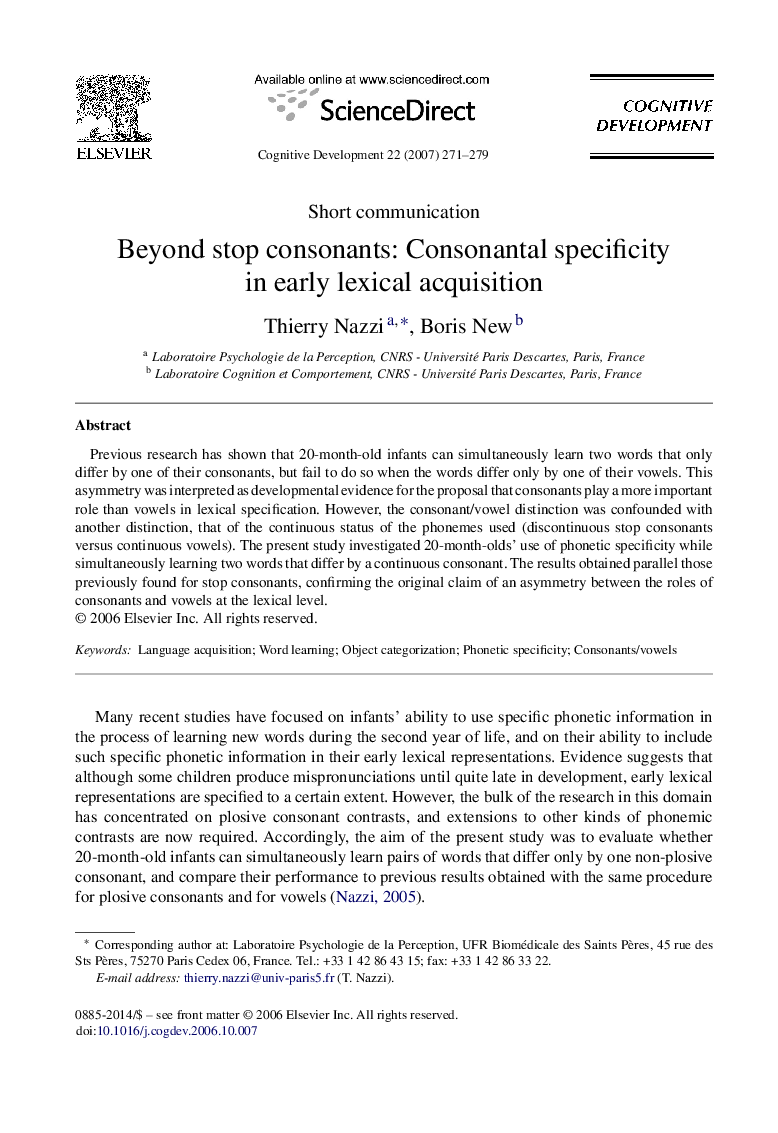| Article ID | Journal | Published Year | Pages | File Type |
|---|---|---|---|---|
| 916668 | Cognitive Development | 2007 | 9 Pages |
Previous research has shown that 20-month-old infants can simultaneously learn two words that only differ by one of their consonants, but fail to do so when the words differ only by one of their vowels. This asymmetry was interpreted as developmental evidence for the proposal that consonants play a more important role than vowels in lexical specification. However, the consonant/vowel distinction was confounded with another distinction, that of the continuous status of the phonemes used (discontinuous stop consonants versus continuous vowels). The present study investigated 20-month-olds’ use of phonetic specificity while simultaneously learning two words that differ by a continuous consonant. The results obtained parallel those previously found for stop consonants, confirming the original claim of an asymmetry between the roles of consonants and vowels at the lexical level.
